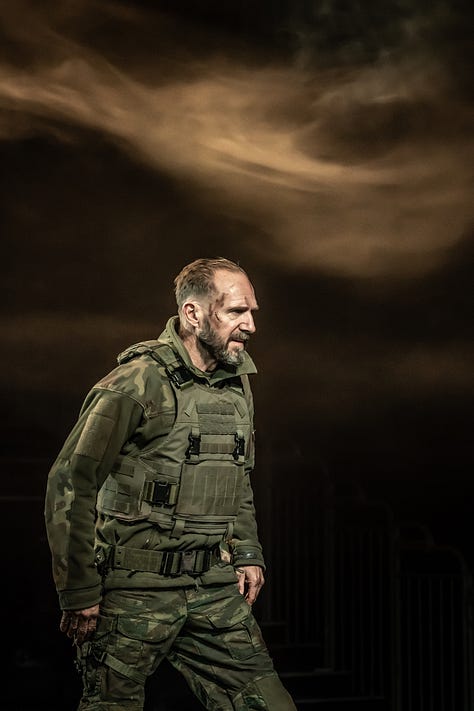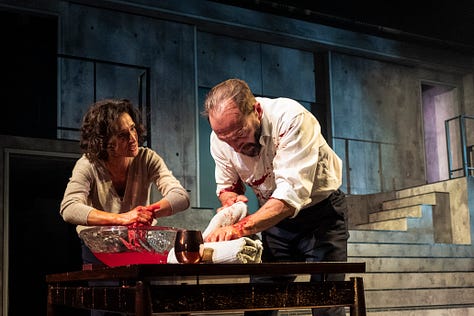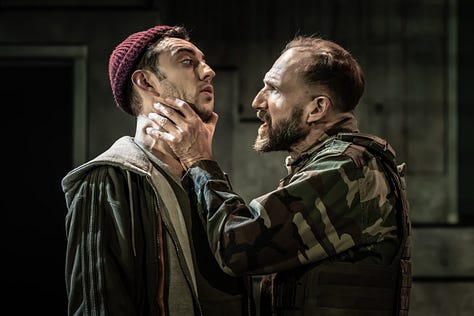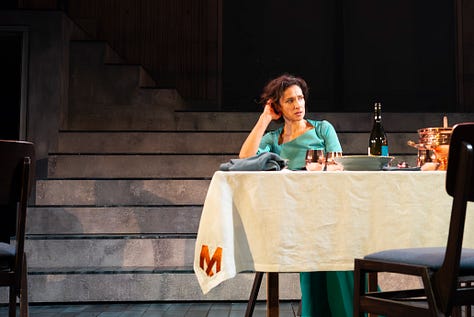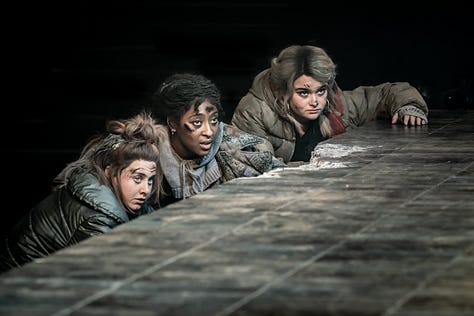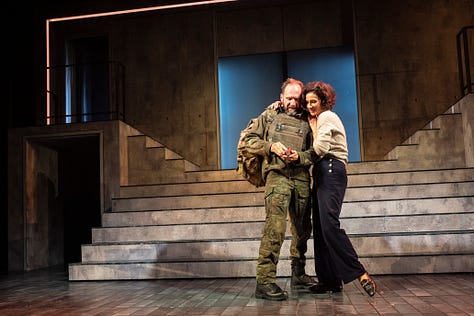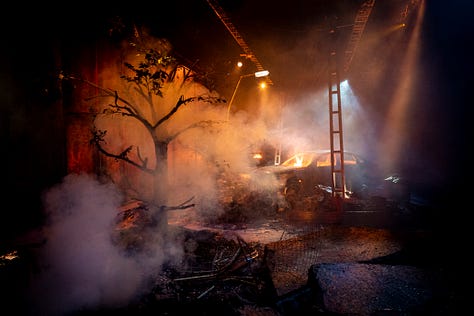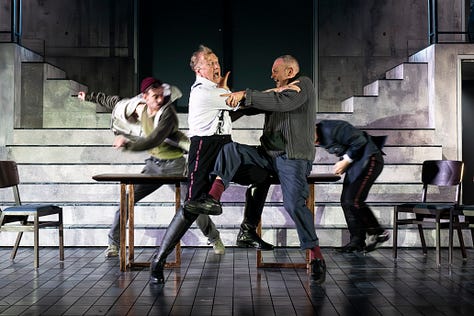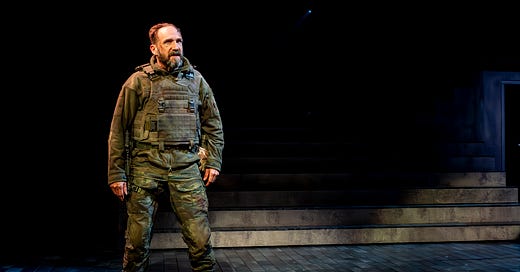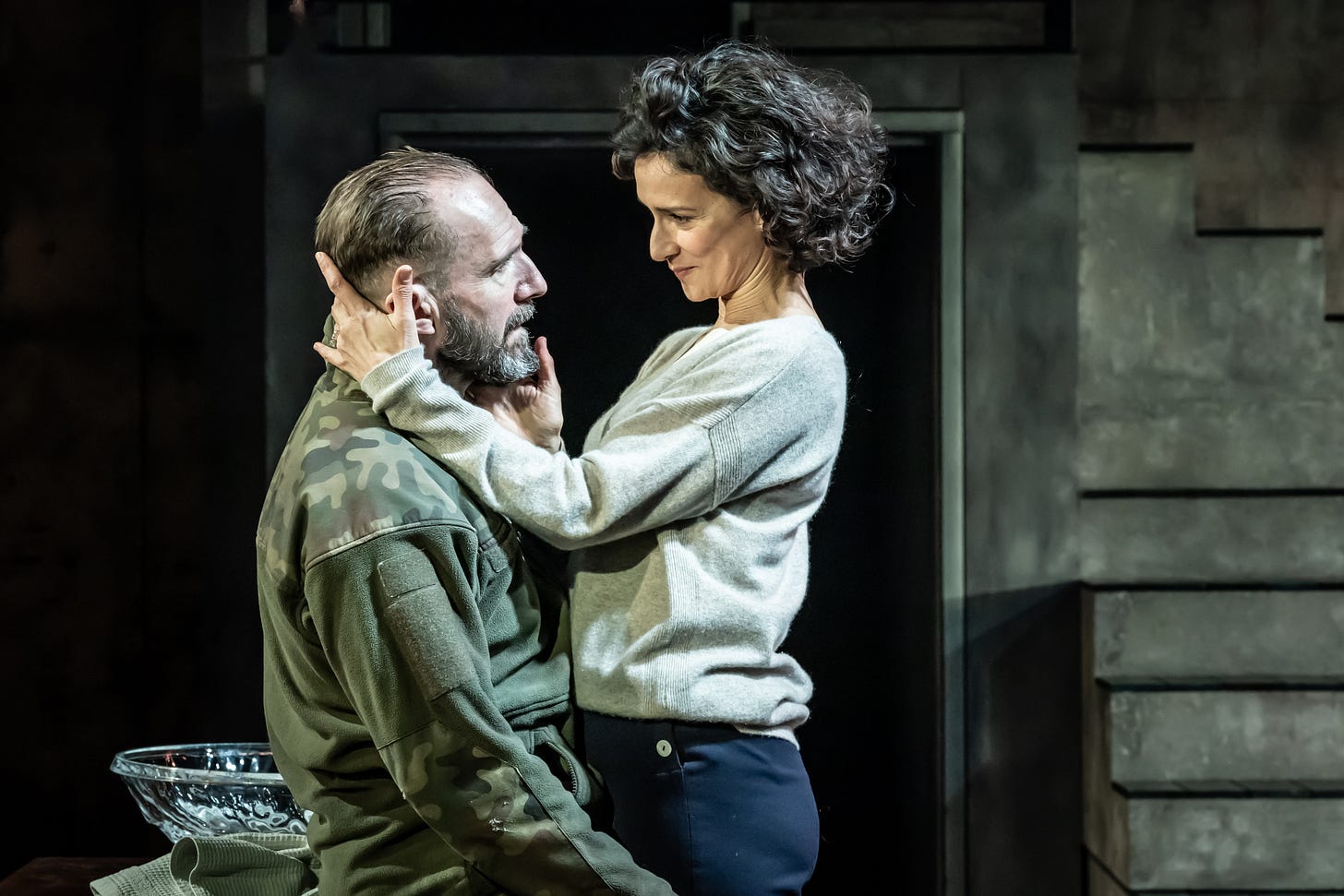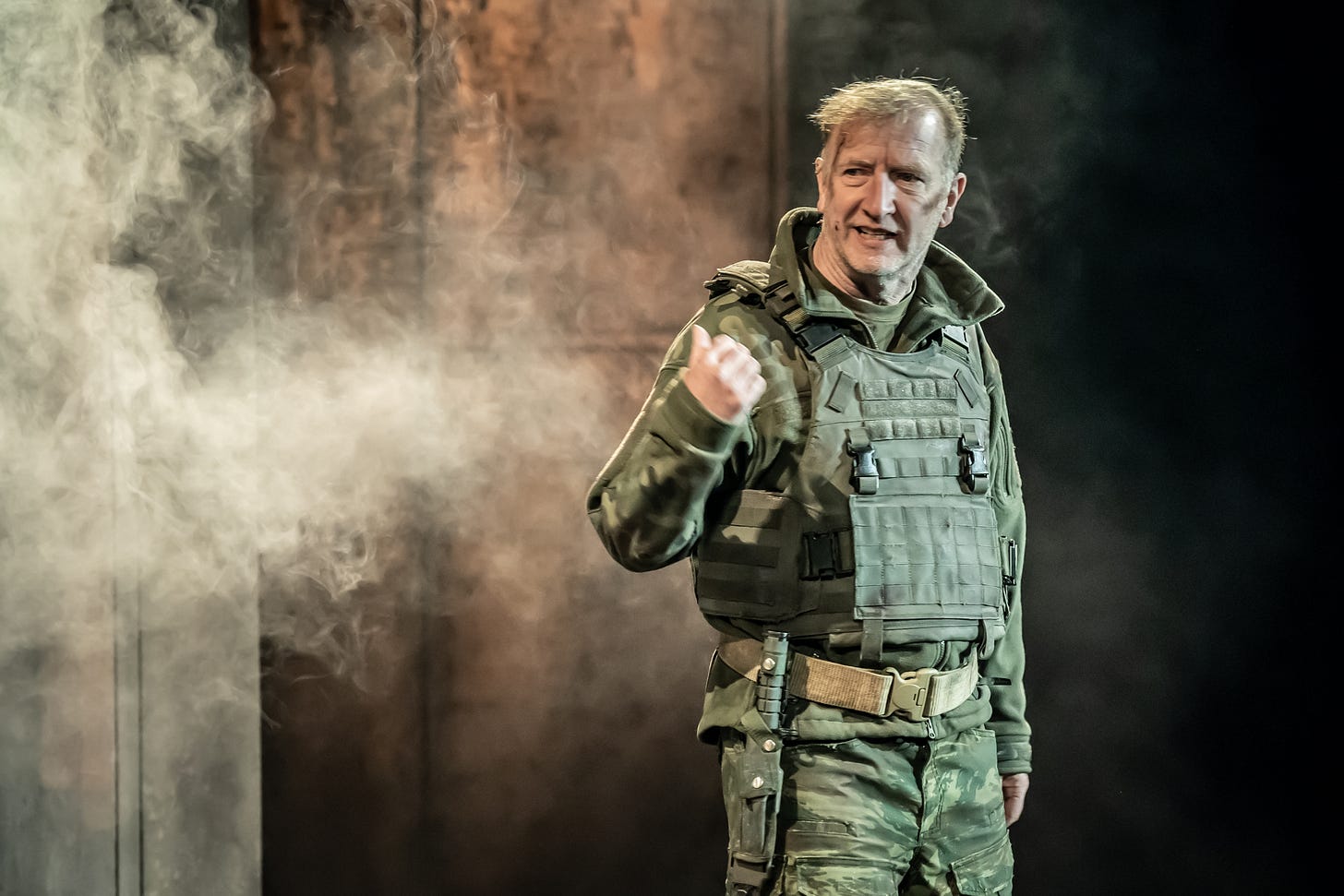Review: Macbeth starring Ralph Fiennes and Indira Varma
Royal Highland Centre, Edinburgh ⭐️⭐️⭐️⭐️
By the pricking on my thumbs something rather special this way comes… Shakespeare Theatre Company’s long-awaited warehouse production of Macbeth has arrived at Edinburgh’s Royal Highland Centre and while it may be a trek to get to the venue, it’s one worth making if just to glory in the splendour of Ralph Fiennes and Indira Varma’s majestic performances.
This new production of Shakespeare’s ‘Scottish Play’ is set in a world of missiles and rockets, of war and duplicitous politics, the seed is sown from the off as audience members traipse a landscape dominated by a burnt out car, abandoned in the rubble of a ruined city, a solitary flickering street lamp the only sign of life. It’s the desolation of a war zone, reflecting so much of the world today.
It unites present and past in a way that, combined with designer Frankie Bradshaw’s erratic costume choices and Shakespeare’s age-old words, give this production a timelessness that is only occasionally broken by attire so contemporary, it momentarily breaks the spell.
In this staging, of course, two names are the main attraction and both Fiennes and Varma live up to their star billing. The former presents a Macbeth that is complex and layered yet not without warmth. Fiennes’ brave ‘soldier king’ is an emotionally fragile creation, corrupted by his inner desires and bolstered and enabled by his wife’s drive and ambition.
As Lady Macbeth, Varma is supreme. Cooly calculating, she is the duplicitous power behind the throne and puppet master all rolled into one, a masterfully manipulative and malevolent temptress.
Both entrance, they are doyens of conversational delivery, breaking the fourth wall to speak directly with their audience of such tings as witchcraft, war and want. That, under Simon Godwin’s concise direction, makes this a particularly accessible if often brutal production that sheathes its horror only to unleash it to shocking effect.
While the star names are matched in their understanding of the Bard’s poetic use of language by Steffan Rhodri, an eloquent Banquo, and Ben Turner, a well observed Macduff, the company remains true to the ethos of travelling players of old, bringing together an uneven mix of experience and ability.
While there are a few distractions and the odd tendency to overplay, perhaps the most incongruous anomaly on view is the depiction of the three witches; these Weird Sisters remain only too corporeal despite their ‘supernatural’ abilities.
At two hours 40 minutes, including interval, the pace wilts briefly in the second act before Fiennes returns to the stage ensuring the denouement is a satisfyingly dramatic affair that confirms this Macbeth as Edinburgh’s (if not Scotland’s), must see theatre this January.
Runs until 27 January. Tickets here
